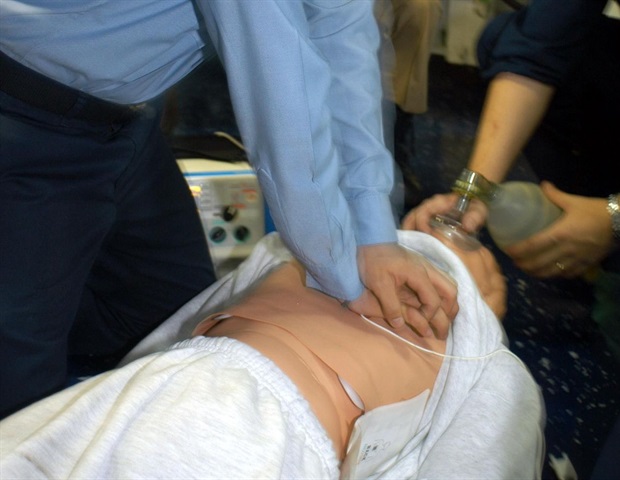In a recent study published in PLoS One, researchers assess the predictability of venous thromboembolism (VTE) among adults using genetic risk scores (GRSs).

Study: Prediction of venous thromboembolism incidence in the general adult population using two published genetic risk scores. Image Credit: Joyseulay / Shutterstock.com
Who is at risk of VTE?
VTE, which comprises venous thrombosis with pulmonary embolism, is a major cause of mortality and morbidity, with a lifetime risk of almost one in 12 individuals over the age of 45 years in the United States. Between 50% and two-thirds of VTEs are provoked by malignancy, surgery, trauma, or immobilization, while the remaining VTEs are considered unprovoked.
Currently, available VTE prevention techniques do not target the prevention of VTE within the general population. Furthermore, identifying individuals who are at a greater risk for experiencing VTE is difficult, as only a few practical risk scores that can facilitate the diagnosis of high-risk individuals have been published.
About the study
In the present study, researchers determine the extent to which published VTE GRS can predict VTE occurrence.
The Atherosclerosis Risk in Communities (ARIC) study enrolled 15,792 primarily Black or White males and females between 45 and 64 years of age from four American communities. ARIC conducted a baseline or Visit 1 assessment, which involved genetic testing on preserved deoxyribonucleic acid (DNA) samples after subjects provided informed consent.
Between 1990 and 2019, ARIC maintained longitudinal contact with participants through either semi-annual or annual phone calls and six reexamination visits. GRS incorporated signals from several loci by adding the product of the effect sizes and the proportion of effect alleles present at each locus for all participants.
Age, race, gender, hormone replacement therapy, body weight, height, and estimated glomerular filtration rate were measured as VTE risk factors during the ARIC baseline evaluation. Other significant non-lipid cardiovascular risk variables reported at baseline such as diabetes, sports physical activity level, smoking status, antihypertensive medication usage, and systolic blood pressure were also included in the final analysis.
Beginning in 2012, ARIC staff contacted participants by telephone, initially annually and later semi-annually, to inquire about all hospital admissions that occurred in the previous year. Then, the team gathered and reported in-hospital International Classification of Diseases, Ninth Revision, Clinical Modification (ICD-9-CM) codes related to all discharge diagnoses and noted selected hospital record materials for VTE validation until 2019. VTEs were ultimately classified as either provoked or unprovoked.
Study findings
Between 1987 and 1989, 11,292 ARIC participants were included in the study, 54% of whom were female, 78% White, and 22% Black. The individuals reported a median score of 21.4 on the 273-variant GRS and 1.0 on the weighted, imputed five-variant GRS.
F5 Leiden rs6025 and F2 rs1799963, which are two common VTE risk variants in the five-variant GRS, were not part of the 273-variant GRS. Despite this, ARIC enrollees in the top 5% of the 273-variant GRS exhibited a much greater F5 Leiden rs6025 frequency as compared to those in the bottom 95% of the distribution, while 75% of those in the top 1% scores included F5 Leiden.
Altogether, the proportion of F5 Leiden alleles accounted for 9.8% of the variance observed for the 273-variant GRS. Similar frequencies of F2 rs1799963 were also noted in the top 5% and bottom 95%.
Furthermore, ARIC identified 788 participants with VTE across an average of 28 years of follow-up. This included 467 provoked and 321 unprovoked cases.
Participants who had higher scores related to the 273-variant GRS were at a greater risk of total VTE, with incidence rates of 1.7, 2.7, 3.4, and 4.0 for every 1,000 person-years across all GRS quartiles. The incidence rate of VTE was greater among Black individuals than White individuals, although the gradient of risk between quartiles was steeper among White individuals. Additionally, unprovoked VTEs were more strongly correlated than provoked VTEs.
The five-variant GRS was positively correlated with VTE incidence, albeit with considerably lesser hazard ratios (HRs) among White individuals as compared to the 273-variant GRS. When the GRS were adjusted according to each other within the same model encompassing White and Black individuals, HRs adjusted to race, age, and gender for each GRS were reduced; however, the correlations were still greater for the 273-single nucleotide polymorphisms (SNP) score. Furthermore, jointly adjusted HRs reported for all 273-variant GRS quartiles were 1, 1.24, 1.64, and 1.94, while that for the five-variant GRS were 1, 1.12, 1.15, and 1.39.
Conclusions
Middle-aged individuals in the top quartile of either genetic risk score were associated with a risk of VTE that was almost two times of individuals from the lowest quartile. However, the genetic risk scores for Black individuals was weakly associated with VTE.
Further studies are needed to determine whether VTE prevention within the general population is achievable using either a population or a high-risk patient strategy.
Journal reference:
- Folsom, A. R., Tang, W., Hong, C. P., et al. (2023). Prediction of venous thromboembolism incidence in the general adult population using two published genetic risk scores. PLOS ONE 18(1): e0280657. doi:10.1371/journal.pone.0280657















